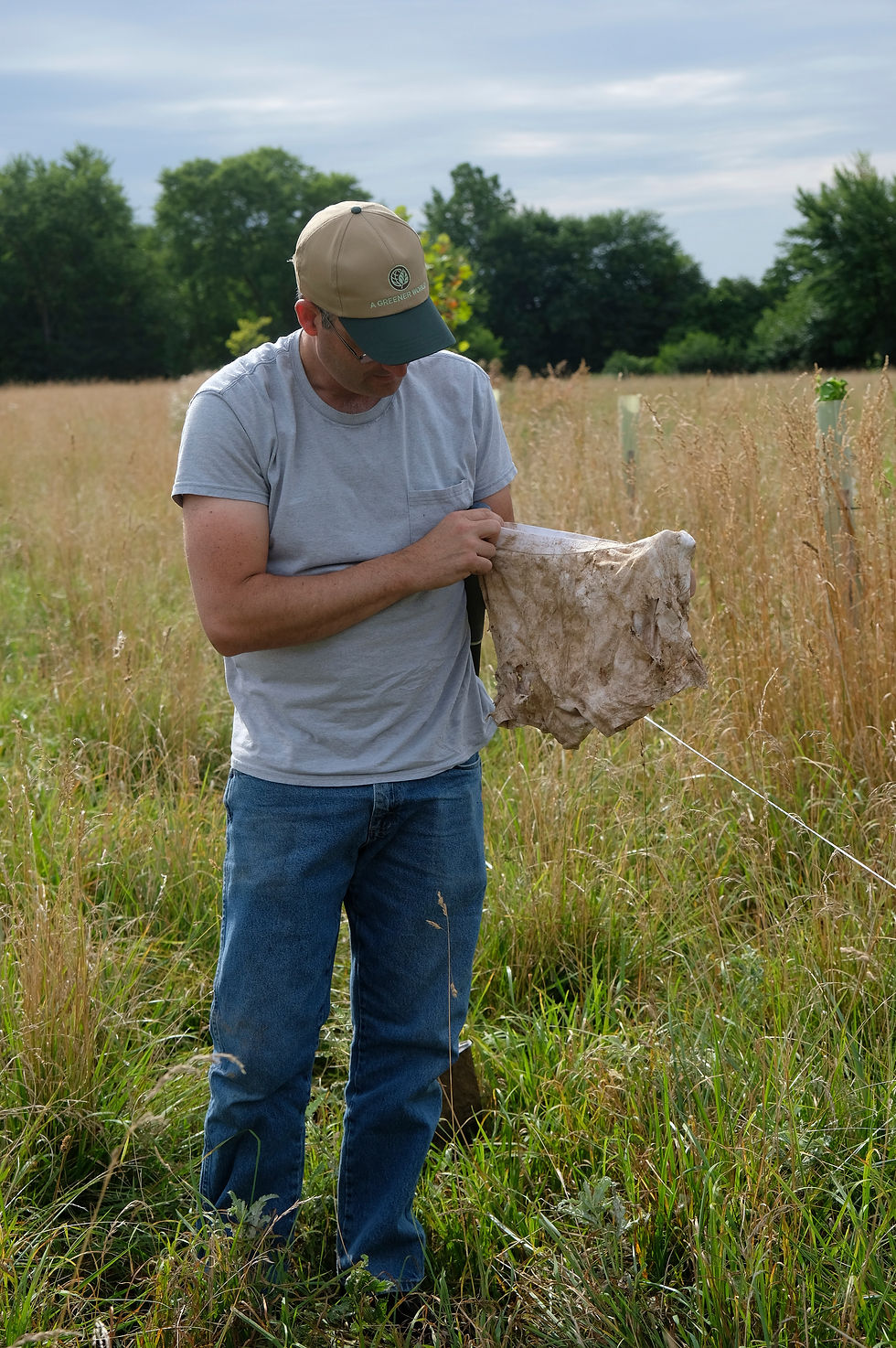You May Want to Shelve Those Undies: Dry soils are widespread this Spring
- lblazure
- Jun 6, 2023
- 3 min read
by Lisa Blazure, Stroud Water Research Center, Soil Health Coordinator
The Soil Your Undies activity generally works best in the late Spring, when soils are moist and warm. But this May, Pennsylvania has seen unusual weather patterns with very little rainfall and high temperatures. So if you haven't already planting your undies, you may want to put them on a shelf and wait to do the activity next year. Last year, we observed that in dry soils there was very little decomposition of the cotton underwear. This wasn't an indication of unhealthy soils, but rather a lack of soil moisture to keep the worms and soil microbes active and feeding.
The information posted below was published last summer and explains why the activity may not have the desired results in dry soils.

It’s easy to appreciate healthy soils when digging a hole - the shovel slides easily into the ground and unearths the dark, rich substrate. A few wriggling worms show their displeasure at being disturbed, and the air has that damp, earthy smell. But without rainfall and soil moisture, the experience of digging a hole can be quite different.
Dry soils are much harder to dig, and the soil crumbles into a powder, easily blown away by the wind. There’s no earthy smell, and the worms are nowhere to be found. We don’t often think of soils as an aquatic environment, but they are. The biological life in the soil relies on water just as much as mammals do, but they are more resilient to surviving drought conditions.

Worms can escape dry soils by going deeper where temperatures are cooler with more moisture. But the microbes aren’t that lucky. Soil microbes live within the thin water layer on soil particles and crop roots. They rely on that soil moisture to feed and move throughout the soil profile. When soils are dry, the microbes can’t easily travel to find better conditions. So their solution is to shut down and go into a dormant phase until conditions improve. When this happens, they stop feeding. They stop cycling nutrients for the plants. They stop producing biological glues that hold soil particles together.
We see evidence of this happening in the Soil Your Undies activity. A Soil Health Coalition member organization partnered with a beef farmer and buried a pair in his pasture. Typically, pastures have a very high soil health score since those fields follow the four main principles: reduced soil disturbance, continuous living plants, keeping the soil covered, and diversity in the system.
They anticipated a lot of decomposition when they dug up the undies. But were surprised at the results. The undies were mainly intact after 60 days. This farm has had very little rain this summer, and the soils were very dry. The worms and microbes were dormant and not actively eating the cotton.


Very dry soils and little decomposition. Photos credit: Kelly O'Neill
Farms cannot control if the rain falls on the fields. However, they can make management decisions that improve the soil and better allow rainwater to soak in. Healthier soils have higher organic matter which acts as a sponge, holding on to the rainwater and keeping it in the root zone. For every 1% increase in soil organic matter, an acre of soil can hold around 20,000 gallons of water!
Undisturbed soils usually infiltrate more water and have less runoff. Cover crops build soil structure, creating more pore space that allows the water to soak in. Not only is this good for the crops and microbes; it’s also good for the local streams. Less sediment and nutrients running off of fields and into streams helps to protect water quality.
How is your soil sponge? What steps can you take to increase soil organic matter and improve water infiltration?

Comments